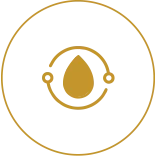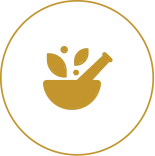In the absence of any credible vaccines against the deadly coronavirus, what has emerged as most effective in this fight is rigorous hygiene keeping and social distancing. In the copious amount of hand washing that we indulge in every day for 20 seconds each time, we may not have realized one thing. Have you ever, just for fun, turned over your bottle of hand wash or sanitizer or shampoo and checked the label for what kind of chemicals go into making them? Sure, there are chemicals that are harmless and help in binding and absorbing water, but store bought personal care products like hand wash liquids are also likely to contain tons of chemicals that are hazardous not just for the environment but also for human consumption.
-
Triclosan In Hand Wash Liquids
You will find it on most of your commercial personal care labels. This chemical usually found in deodorants, shampoos, soaps, face washes and hand-sanitizers and laundry is touted as having anti-bacterial properties. But it can disrupt the marine ecosystem by affecting multiple amphibian and aquatic species by altering their naturally occurring biochemistry. It kills pro-life aquatic bacteria and algae that provide ecological balance. It has been found in guts of dolphins too.
-
DEA or Diethanolamine
DEA is also used in plenty of personal hygiene labels and is said to balance skin’s pH levels, but it can be hazardous to both human beings and animals. It reacts with nitrates to form nitrosamines which are carcinogenic and toxic to fish and other aquatic animals.
-
Parabens

These are preservatives that are used to make beauty care and food products last longer on the shelf as they prevent bacterial growth in the products. Since they come cheap they are used in mass cosmetic labels generously. According to disturbing findings from University of Reading, paraben particles had been found related to breast tumors. They can mimic the female reproductive hormones and thereby disrupt hormonal functions in the body. They are hard to disintegrate which means they are lying around in our oceans and water bodies, which is where all this toxic waste lands up, way longer than they should endangering marine life and all the other species up along the food chain.
-
Formaldehyde
Formaldehyde and formaldehyde-releasing preservatives used in cosmetics to prevent bacterial growth is carcinogenic according to the International Agency for Research on Carcinogens. Overuse of the chemical has been linked to pharyngeal and nasal cancers. It also significantly undermines body’s immunity apart from causing skin diseases and irritation.
It obviously does not make a lot of sense to fight a disease by drawing in other health complications, which is what a lot of these chemicals above can bring when we use these products every day, multiple times a day for ourselves and our family members. As awareness about the use of dangerous chemicals in manufacturing mass marketed products grows, people are moving on to the real deal-naturally made cleansers and hand washes that perform the cleansing and disinfecting function at par with commercially produced hand washes and sanitizers. These herbal hand washes use the natural anti-bacterial and ant- microbial properties of herbs found in nature. Like,
Shankara’s newly launched Pure Clean Hand Gel, a hand wash which is gentle yet effective rinse-free and helps deeply cleanse and moisturize your hands with benefits up to 24 hours. It is made using an all-natural formula and is free of alcohol, parabens, and sulfates. It is vegan and cruelty free.
As more and more consumers awaken to the reality of climate change and environmental degradation, they seek to make environmentally aware choices too, part of which includes, picking personal care brands like Shankara that only promotes, creates and adopts sustainable manufacturing practices and technology. The product is a beautiful blend of best of East and West. Founded in 2001, the line brings together Ayurveda, the ancient science of life, with the modern science of actives and antioxidants through modern manufacturing methods.










